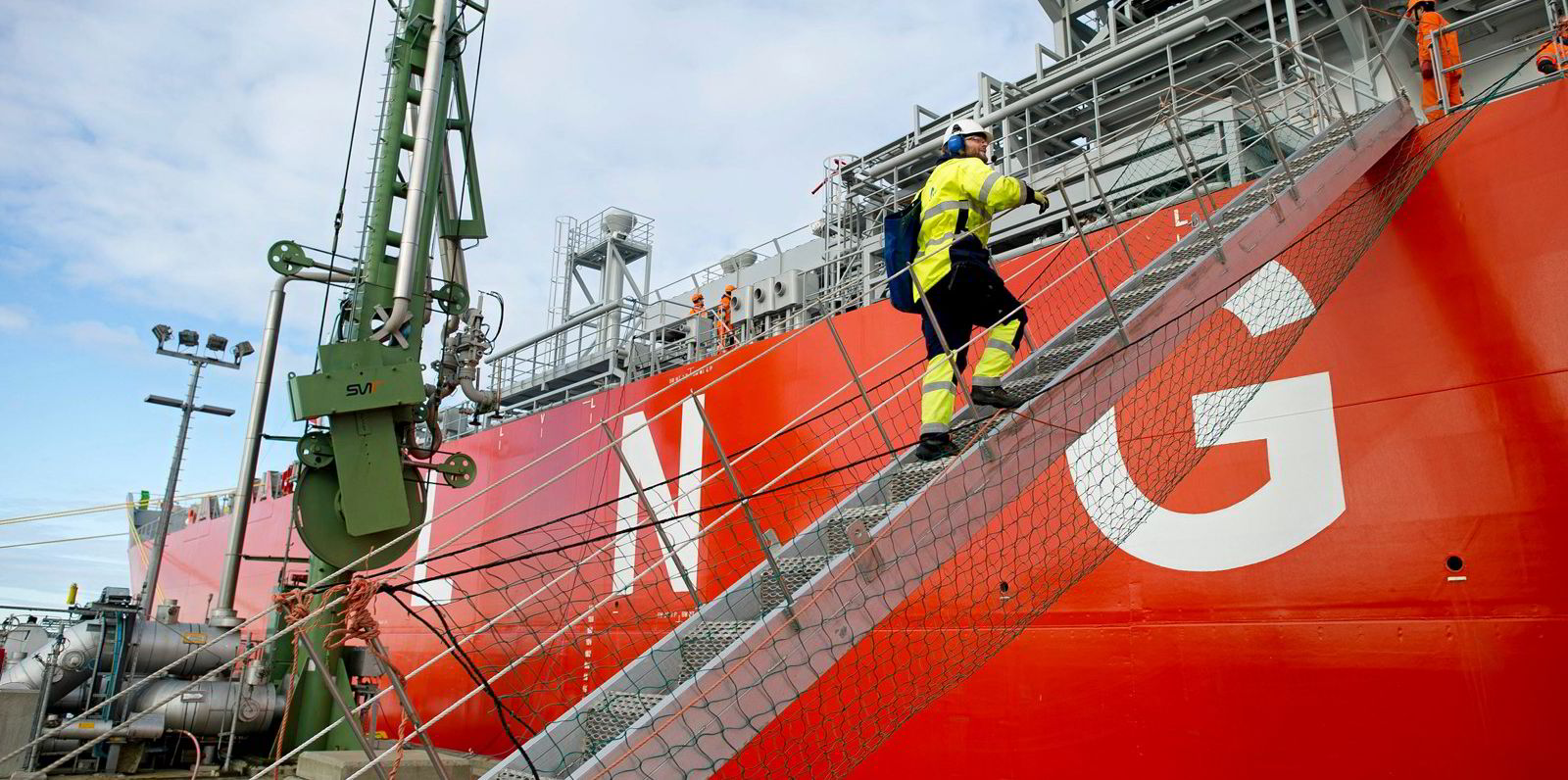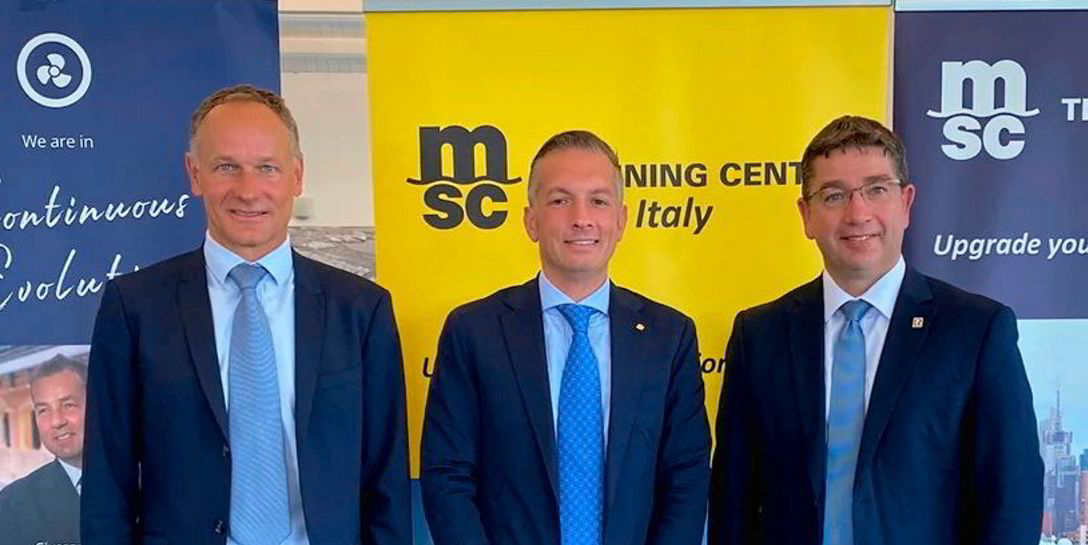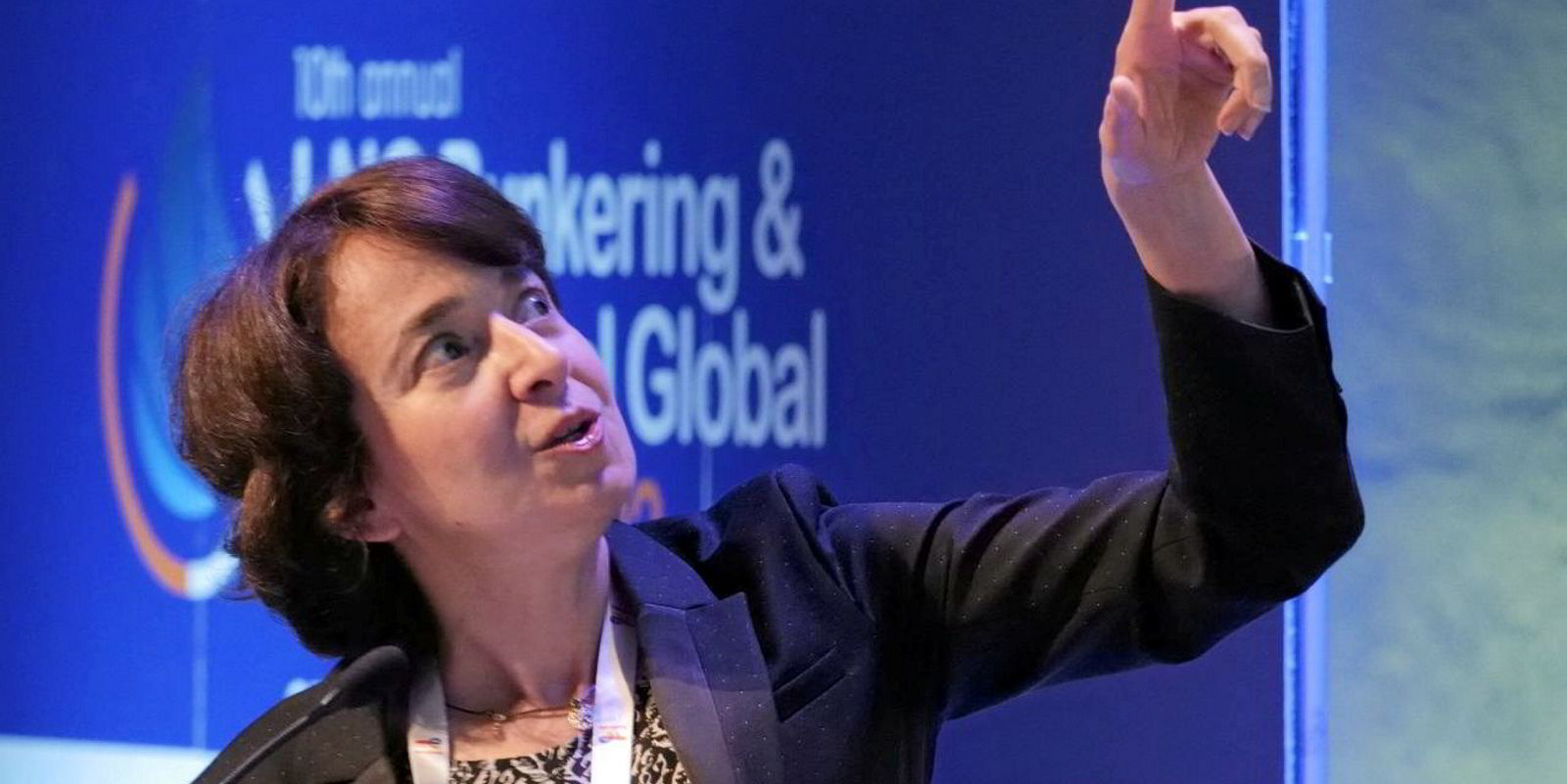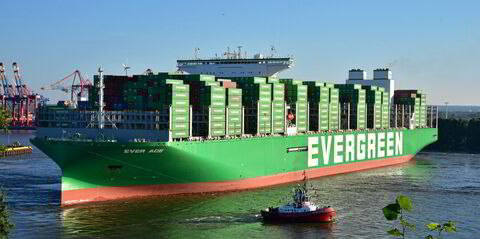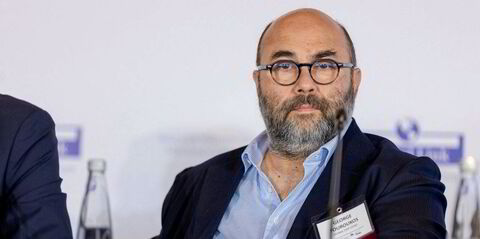Dutch shipowner Anthony Veder is working with a client on the design of an ammonia carrier that will use ammonia as a fuel.
Anthony Veder head of business development Gerben Dijkstra told IQPC’s 10th LNG Bunkering & Future Fuel Global Summit 2023 in Amsterdam that the company is designing an ammonia-fuelled newbuilding to understand better what the onboard systems should look like.
Dijkstra, who later clarified that this would be a vessel designed to carry ammonia as its primary cargo, did not reveal the size of vessel or other technical details.
He described the safety aspects of the fuel as “a concern” but one the company believes is “manageable”, particularly as Veder transports hazardous cargoes. But he said question marks remain flagging up the volumes of pilot fuels ammonia will require.
He told the conference: “We already transport ammonia so why not look at ammonia bunkering.”
Speaking about LNG as a marine fuel, Dijkstra said that with the right technology selection Veder sees LNG as remaining compliant with emissions regulations until the mid-2030s
At this point, access to “significant volumes” of drop-in fuels will be needed for LNG to stay credible.
Speaking on the panel about fuelling choices for its own fleet, Dijkstra said Veder is looking for 25 years of life when it orders its ships which means the company will need to make renewal decisions for some of its vessels “quite soon”.
He said Veder’s approach is that it does not exclude any alternative fuels when looking at newbuildings, even though it has been focused mainly on LNG as a marine fuel.
Dijkstra mentioned that the company has developed projects in ammonia and liquid hydrogen space.
“We are exploring these options both from a shipowning perspective facing fuel decisions as well as trying to make business and move into those segments,” he said.
The business development manager said Veder does this with clients that it thinks “can make it happen”, get the company connected to the right parties and understand the technology and its impacts.
He pointed out that Veder has to live with the consequences of its choices on factors like engine technology for the next 25 years.
But Dijkstra said Veder believes that for the next couple of years at least LNG is “still the most mature technology”.
He said it offers up to a 20% cut in CO2 emissions provided the right equipment is selected.
In contrast, choosing methanol or ammonia will have a negative impact for the next couple of years as these are from fossil origin and they will increase a company’s carbon footprint until they have access to e- of synthetic fuels.
For e-fuels Dijkstra said Veder’s analysis shows “no clear winner” adding that they all have their pros and cons in terms of energy density, availability, safety and practicality. But their efficiency and costs are still not clear, he added.
“Our choice for next couple of years will be — if we order newbuild vessels — we will order dual-fuelled LNG propelled engines because we think that with a 25-year time horizon and technology where it is right now that is the only responsible choice we can make.”
But he said this does not exclude the company using the alternative fuels later.
